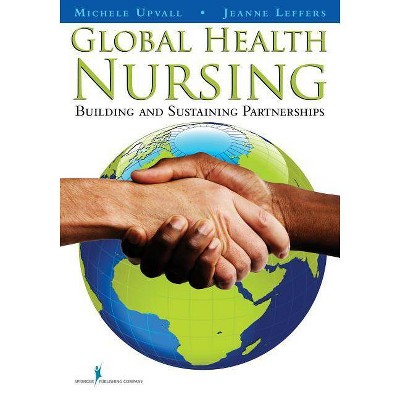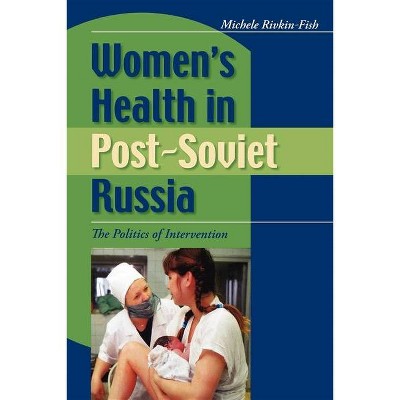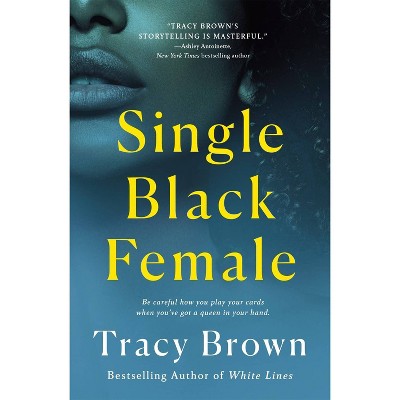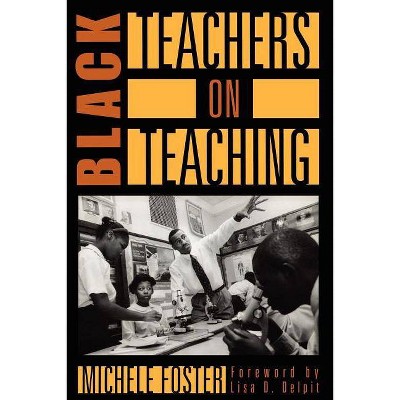Black Women's Health - by Michele Tracy Berger (Paperback)
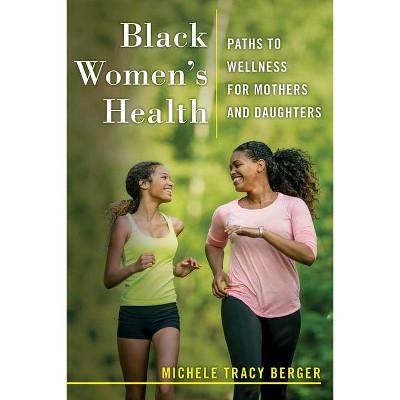
Similar Products
Products of same category from the store
AllProduct info
<p/><br></br><p><b> About the Book </b></p></br></br>"This book explores the meaning and practice of health in the lives of southern African American women and their adolescent daughters"--<p/><br></br><p><b> Book Synopsis </b></p></br></br><p><b>The struggles African American women and their adolescent daughters face in living healthy, active lives</b> <p/>From heart disease and diabetes to HIV and obesity, Black women and girls face serious health risks, lagging behind their white counterparts by every measure of health, well-being, and fitness. In <i>Black Women's Health</i>, Michele Tracy Berger shows us why this is the case, exploring how the health needs of Black women and girls are uniquely rooted in their experiences with racism, sexism, and class discrimination. <p/>Drawing on interviews with mothers and their daughters, as well as compelling medical data, Berger provides insight into the larger patterns that place Black women at such high risk on a national level. She shows how Black mothers communicate with their daughters about health, sexuality, and intimacy, including how they attempt to promote healthy living standards even as they navigate widespread, systemic challenges. <p/>Ultimately, Berger highlights the important role that family--and specifically, the relationship between mothers and daughters--plays in improving public health outcomes. <i>Black Women's Health</i> takes a much-needed, intimate look at how Black women and girls navigate different paths to wellness.</p><p/><br></br><p><b> Review Quotes </b></p></br></br><br>Michele Tracy Berger provides an insightful and innovative approach to understanding relational and historical factors influencing health and wellbeing for Black mothers and their adolescent daughters. Through first grounding readers in intersectionality and highlighting the significance of Black women-led health initiatives, such as First Lady Michelle Obama's Let's Move Campaign, Berger grounds readers in the critical importance of centering Black women's perspectives to shift the paradigm of health and wellness. She then guides the reader through her rigorous qualitative research findings, organized by the worldviews of her focus group participants. <i>Black Women's Health</i> appropriately highlights the multidimensional characteristics of Black mothers, daughters, as well as the strengths and challenges of their dynamic contextualized relationships. This is a must read for any individual or group committed to positively influence the lives of Black women and girls.--Cheryl L. Woods Giscombe, Melissa and Harry LeVine Family Professor of Quality of Life, Health Promotion and Wellness, The University of North Carolina at Chapel Hill<br><br>The indelible bond between mother and daughter is both spiritual and physical. For Black mothers and daughters to engage in the exchange of herstories around health, as eloquently woven together by Michele Tracy Berger, elevates the collective narrative of Black girls' and women's health, seamlessly filling in the research gaps of Black women's ways of knowing and demonstrating why Black women researchers are needed in discourse around Black women's health. Berger's focus on the lived experiences of Black girls' and women is central to understanding the complexities of their lives. Rarely are Black girls and women in intimate conversation around health and sexuality; and while the conversations can unravel prior beliefs and knowledge, women's words have the power to uncover, build and fortify.This effort, while centering Black Feminist and intersectionality scholarship, will do the same for efforts to address Black girls' and women's health.--Jameta Nicole Barlow, Assistant Professor of Writing, Women's Leadership and Health Policy and Management, George Washington University<br><p/><br></br><p><b> About the Author </b></p></br></br><b>Michele Tracy Berger </b>is Associate Professor of Women's Studies at the University of North Carolina-Chapel Hill. She is the author of many books, including <i>Workable Sisterhood: The Political Journey of Stigmatized Women with HIV/AIDS</i>. She is a leading scholar in applying intersectional approaches to studying areas of inequality. This work spans the fields of public health, political science, sociology and women's and gender studies.
Price History
Cheapest price in the interval: 30 on November 8, 2021
Most expensive price in the interval: 30 on December 20, 2021
Price Archive shows prices from various stores, lets you see history and find the cheapest. There is no actual sale on the website. For all support, inquiry and suggestion messages communication@pricearchive.us

